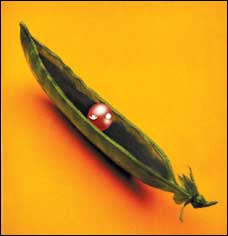 Things are finally moving on Nepal-India cooperation. Whatever created the logjam, it seems to have been removed. Several hydropower projects are moving ahead simultaneously: Budi Gandaki, Upper Karnali and even the on-again-off-again private sector joint venture West Seti. The last is such good news in India that the Economic Times newspaper gave an exultant headline to the story this week: 'Nepal to light up North India'.
Things are finally moving on Nepal-India cooperation. Whatever created the logjam, it seems to have been removed. Several hydropower projects are moving ahead simultaneously: Budi Gandaki, Upper Karnali and even the on-again-off-again private sector joint venture West Seti. The last is such good news in India that the Economic Times newspaper gave an exultant headline to the story this week: 'Nepal to light up North India'. In other fronts, the Birganj dry port agreement was finalised amidst cheers from the business community here. Nepali banaspati ghiu exporters are happy that they can start selling again in India. Even the Nepal-Bhutan bilateral agreement on repatriation of refugees, however flawed, appears to have unjammed. This week, after more than a decade, India announced it is resuming bilateral cash grants to local bodies with a first package worth Rs 500 million.
For the intrigue-minded in Kathmandu, all this is too good to be true. Where is the catch, they ask. Is all this tied up somehow with domestic political developments?
To be sure, Indian aid to local bodies comes at a time when elected VDC and DDC councils don't even exist. Positions are being filled by nominees who are handed their appointment papers at the Local Development Ministry at Sri Mahal. At a radio talk program this week (translated on page 12) some of the new nominees argue that their responsibility is towards the people and the people can't wait for the politics in Kathmandu to sort itself out. They have a point.
The debate really should be over how to quickly deliver development in a time of crisis, not a theoretical debate over the process of democracy. That is the current conundrum: how long do we wait for things to get worse before we start working to make them better?
The Maoists dismantled democracy at the grassroots over the past eight years by systematically killing off, or hounding out, elected local officials and blowing up most VDC buildings. At the national level, a parliament, an elected prime minister and other institutions of democracy have been extirpated one by one by the royal right. Just go through this checklist: Parliament is dissolved, the Auditor General's office hasn't made a report in two years, the Election Commission is commissionerless (the prime minister has clarified that some names are still in his pocket) and, although the Attorney General has his hands full, it is not clear who he is accountable to these days.
In fact, the only institution that is extraordinarily active is the CIAA, leading to speculation about who it choses to prosecute. One does not have to be a conspiracist to see that it really does look like shadowy forces are dismantling the superstructure of democracy.
The only entities that could start rebuilding democracy, the political parties, have shown themselves to be out of their depth. Their fragile alliance seems to fall apart every time a prime ministership is dangled in front of them. The Nepali Congress and the UML are still waiting for that phone call from the palace. Sher Bahadur Deuba and Girija Prasad Koirala hate each other so much that it is certain they will take each other down without anyone else\'s help.
Collectively, the parties are trapped between the right and left. Their anti-regression logic is now tired, and they know that the people know it is a hollow slogan. They don't want to intensify the agitation for fear the Maoists will infiltrate it. In the end, as is the norm in Nepal, the losers are the people from whose grasp sovereignty granted by the 1990 Constitution has now been all but taken away. They have lost their voice, and have nowhere to turn now to ask the questions that they want to about whether international agreements involving national resources will ultimately benefit them. Through all this, the king is keeping an enigmatic silence.


